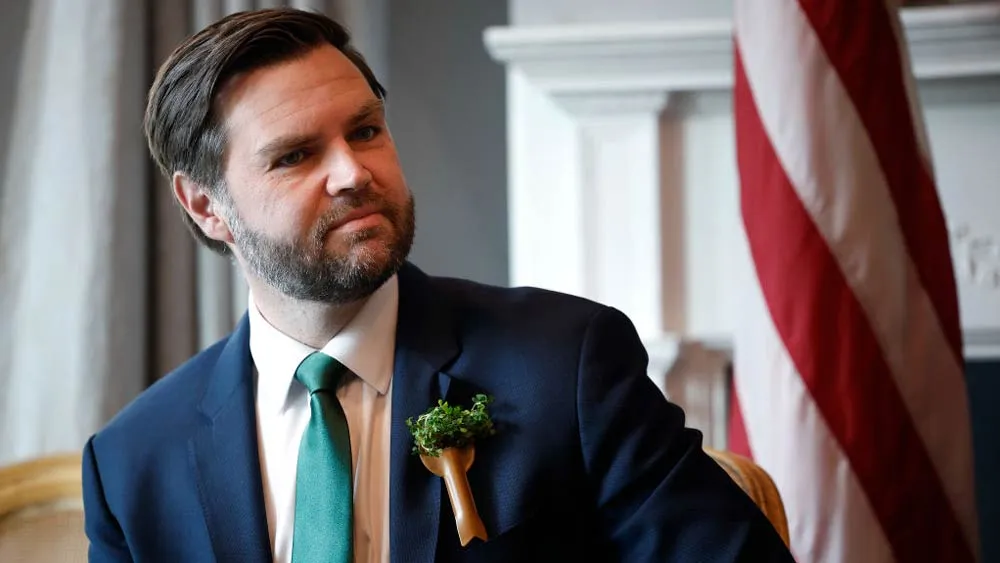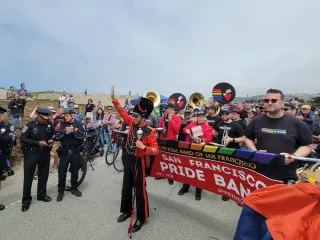March 3, 2014
Gay Rights Advocates Move to Increase Protections in Kansas
Jason St. Amand READ TIME: 3 MIN.
Having won a key legislative fight with social conservatives in Kansas, gay rights advocates aren't content with simply blocking a measure they said would have encouraged businesses and government workers to refuse to serve gays and lesbians in the name of religious freedom.
They are after something much bigger: New protections for gays and lesbians against bias in hiring, employment, housing and public accommodations.
When legislators begin the second half of their annual session this week, Equality Kansas, the state's leading gay rights group, and its allies will push lawmakers to rewrite Kansas' anti-discrimination laws to cover sexual orientation and gender identity.
They believe there is an opportunity for such a move after the Senate's conservative Republican leaders, due to national criticism and business opposition, declared a House-passed "religious freedom" bill dead in early February. But the Kansas Catholic Conference, conservative social groups and some GOP conservatives still want new protections for groups and businesses that refuse, for religious reasons, to have any involvement with gay marriages or weddings.
The Senate Judiciary Committee plans to hold a hearing Thursday on whether existing state laws already protect religious liberties, should the federal courts strike down the state constitution's ban on same-sex marriage. And Democratic leaders agreed that lawmakers should discuss anti-discrimination laws, with House Minority Leader Paul Davis, a Lawrence Democrat who is running for governor, saying he supports an expansion.
Committee Chairman Jeff King, an Independence Republican, said if critics of the House bill want to pursue "a consensus approach" on religious liberties, "I'm happy to hear their suggestions."
"If the outcome of this is we enhance protections for religious freedom in a way all parties can agree on, I think that's a pretty good outcome," King said.
Equality Kansas' executive director, Tom Witt, says it is time to talk about both subjects. The group has tried unsuccessfully three times since 2007 to add sexual orientation or gender identity to Kansas' anti-discrimination laws.
"They clearly are inextricably linked as issues," he said.
But social conservatives haven't linked the two issues, and they are wary of adding sexual orientation and gender identity to anti-discrimination laws.
Robert Noland, executive director for the conservative Kansas Family Policy Council said one concern is that expanding the laws would, for example, protect transgender men - who identify and dress as women - and expect to use bathrooms and other facilities for women, including at schools.
Noland said another fear is that broader anti-discrimination laws will lead to hate-speech policies to limit public criticism of homosexuality.
"The concern, again, goes back to the bedrock of religious liberties," he said.
The state's anti-discrimination laws bar bias in housing, employment and public accommodations based upon race, religion, sex, disability, family status and national origin. It contains exemptions for religious groups, some small businesses and landlords with only a few rental units.
Advocates on both sides acknowledge that as long as the state's anti-discrimination laws don't cover those items, businesses, employers, landlords and others can't face fines or lawsuits. But Noland and other conservatives worry the legal climate could change dramatically if the federal courts strike down the state's same-sex marriage ban.
The "religious freedom" bill passed Feb. 12 by the House would prohibit government fines and anti-discrimination lawsuits if a person, group or business - citing a "sincerely held" religious belief - refused to provide goods, services, accommodations or employment benefits related to a marriage, civil union or domestic partnership, or a ceremony. The bill also would protect religiously affiliated adoption agencies refusing to place children with gay couples.
Critics focused on a provision to extend such protections to individual workers or government employees who refused for religious reasons to provide legal services to gay couples. The provision requires the business or agency to find a work-around if it wasn't an undue burden.
Equality Kansas Chairwoman Sandra Meade has pledged to work with faith leaders to protect religious liberties, and the group's executive director agrees that religious practices should be free from government interference.
"Our organization is absolutely willing to work with this Legislature on developing language that works for everybody," Witt said.




